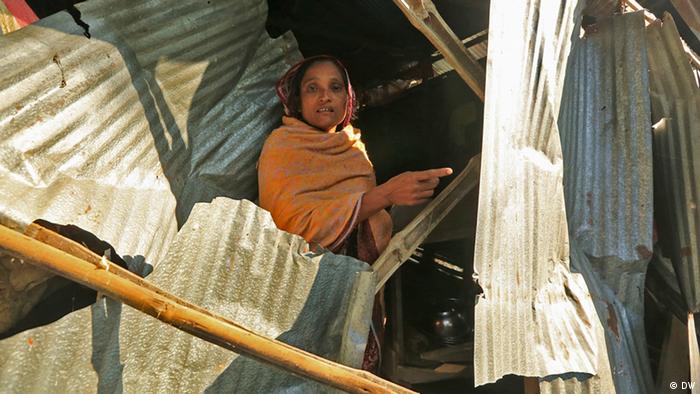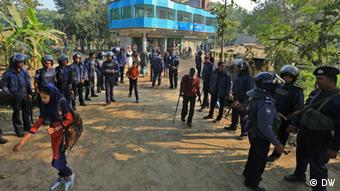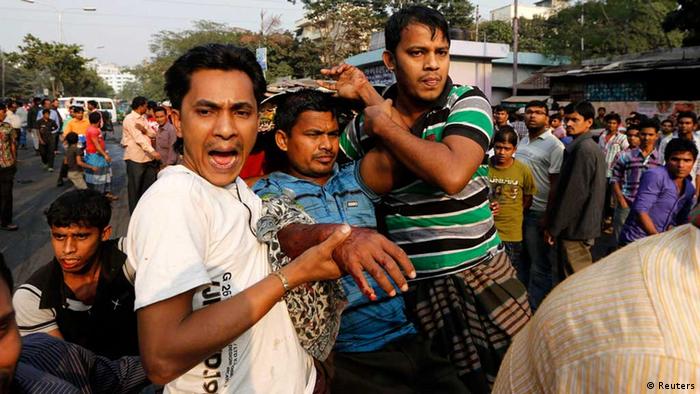
Bangladesh’s Hindu community was targeted by Islamists in the January 5 parliamentary elections, making the religious minority feel more insecure than ever in their own country.
During the run-up to the January 5 general election in Bangladesh, the police arrested dozens of opposition activists for their alleged involvement in nationwide attacks on the country’s Hindu minority.
According to media reports, the anti-government protestors, which include Islamists, torched over 100 Hindu homes and injured scores of them.
It was the second major wave of attacks against Bangladeshi Hindus in less than a year. Just a few months earlier, Islamists attacked hundreds of Hindu homes and desecrated their temples following the International Crimes Tribunal decision to sentence members of the Islamist Jamaat-i-Islami party to death.
The campaign group Human Rights Watch confirmed the attacks: “Members of the Jamaat-i-Islami and its youth wing, Shibir, alongside supporters of the Bangladesh Nationalist Party (BNP) have engaged in countless attacks on security forces and others.
“The attacks have included throwing homemade grenades and petrol bombs at police, arson attacks to enforce a road blockade, derailing passenger trains, setting fire to the homes and businesses of the Hindus and the Awami League officials, and throwing grenades into crowded streets.”
Bangladesh or ‘Banglastan?’
The attacks on the Hindu community, which traditionally supports the ruling Awami League party, can be viewed in the context of political alliances. But there is a lot more to the issue.
Before the country’s independence from Pakistan in 1971, Hindus made up around 30 percent of the country’s population. Today, the number of Hindus living in Bangladesh has declined to about 9 percent, with many Bangladeshi Hindus migrating to India, North America and Europe in the past decades in search of a better life.
Rana Dasgupta, a human rights lawyer, says that if attacks on Hindus continue, there will be no Hindu left in Bangladesh soon. “I fear Bangladesh will become ‘Banglastan’ if things don’t change,” Dasgupta told DW.
Another human rights lawyer and activist, Sultana Kamal, also condemned the attacks on Bangladeshi Hindus. “I strongly feel that what is happening to the Hindu community in Bangladesh definitely falls under the definition of crimes against humanity.”
Property grabbing
Legal experts say that despite its overall secular nature, certain parts of the Bangladeshi constitution could be interpreted and used against the country’s religious minorities, a loophole the extremists often take advantage of, they say.
The seizure of Hindu’s properties is a decades-old phenomenon in the South Asian nation. It goes back to the time when Pakistan introduced the so-called “Enemy Property Act” in its then eastern wing (now Bangladesh) after a war with India in 1965. It gave the authorities the right to confiscate a person’s property if he was deemed an “enemy of the state.” The Act remained in force in Bangladesh after the country gained independence; with the government only renaming it to “Vested Property Act” in 1974.
In 2001, Bangladesh replaced this act with the “Vested Property Repeal Act,” which paved the way for the return of property confiscated from religious minorities.
Despite the constitutional amendments, the Islamists use this so-called “enemy of the state” doctrine as a legal excuse to attack religious minorities and grab their properties.
Lack of trust
Bangladesh’s Supreme Court recently ordered the police to investigate the rise in attacks against Hindus. For its part, Prime Minister Sheikh Hasina’s government has repeatedly blamed the Jamaat-i-Islami for perpetrating violence against religious minorities.
In October 2013, the government approved legislation to help prevent the further harassment of the Hindus. But Kamal emphasizes that more needs to be done: “It is the responsibility of the state to give them (the Hindus) protection, to restore their trust as well as the belief that Bangladesh is a safe place for them.”
Dhiraj Kumar Nath, a former secretary and adviser to the caretaker government, is unequivocal about the impact of the situation on Bangladeshi society: “The legacy of discriminatory laws has continued for the past 48 years, causing communal hatred and discontent between Hindus and Muslims.”







